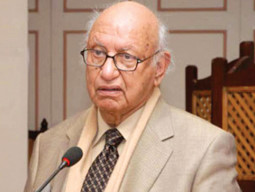
The obvious outcome of such fallacies is a gap between expectation and performance which leads to a trust deficit over the ruling elite of a democratic system. What I have observed during the recent tenures of political governments is that every successive one sets a deadline of 100 days for its economic goals, like the resolution of the power crises, circular debt, and uncertainty due to a worsening law and order situation.
But nothing has been achieved entirely during these periods due to ineffective implementation. In this regard there is no doubt that governments usually prefer to achieve short-term economic goals instead of long and medium term planning mechanisms first. They design the short-term goals of 100 days without any assessment of resources needed to implement them.
It seems that the economic history of Pakistan is repeating itself every five years when an elected government faces the same circumstances as a previous government did five years earlier. And history shows the same picture whenever we look back through the decades.
The last government had claimed it would tackle the economy within 100 days, which in reality turned into just a political promise and nothing in practice.
The question is what has been learnt in five years of deep-rooted economic crises? The answer is nothing. The same energy crises, the same storm of inflation and the same International Monetary Fund loans with their conditional ties are waiting again after five years.
The government has achieved nothing. Inflation is still rising rapidly, prices of food items and other basic necessities have soared from 50% to 100%, the price of petrol from Rs98 to Rs110 per liter, CNG from Rs73 to Rs84 per kg and flour from Rs37 to Rs46. The tariff of electricity and gas also shot up 20% for domestic consumers and over 50% for industrial consumers. The rupee devalued against the American dollar, giving rise to inflation and price-hikes.
Although huge challenges on the economic front can’t be resolved at once, the actual cause of concern is why the governments set ambitious targets without assessing resources and the capability to reach them?
In the end, I will say again that the government has to realise the fact that such practices of setting the deadlines to meet the challenges of years of mismanagement bring nothing but a lack of trust.
The writer hosts business talk shows on FM 101 and Radio Pakistan and is pursuing an M Phil degree in Economics
Published in The Express Tribune, October 7th, 2013.
Like Business on Facebook, follow @TribuneBiz on Twitter to stay informed and join in the conversation.
COMMENTS (5)
Comments are moderated and generally will be posted if they are on-topic and not abusive.
For more information, please see our Comments FAQ


































1714024018-0/ModiLara-(1)1714024018-0-270x192.webp)









@Asim Ali: Yes, i agree with you, besides this method of corruption is used in global policy, the consequances of it we can due to the deep difference between rich and poor countries, in this article , you can find the confirmation to your words. See you
Nice ET an article detailing the 100 days of this government carefully tucked away so no will bother looking at it. I remember the KP 90 days article and the way it was on the front page in all bold. Pathetic.
If this government was sincere, they would have hired top professional from the industry or overseas, paid them top salaries and a mandate to turn around all the sick industries. unfortunately, when the objective is to steal the tax payers money, then the results are evident in front of us
Finally, ET some insightful article based on the ground realities and the affect it cause to the common people.
Finally an article that mentions facts and not biased news like most blogs on this site.